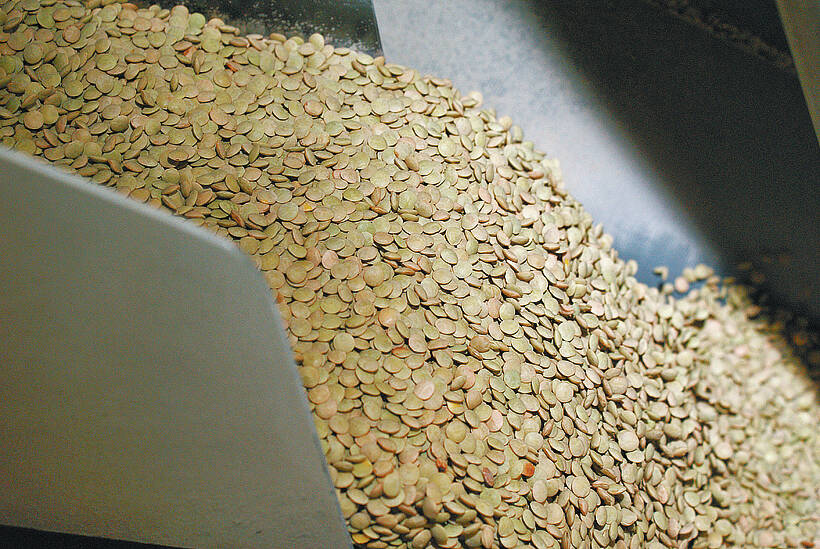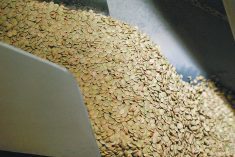The federal government surprised some in the canola industry by living up to its commitment to implement a national biodiesel mandate on Canada Day.
Rick White, general manager of the Canadian Canola Growers Association, had earlier predicted there would be “some slippage” on the July 1 start date.
But in a hastily arranged June 29 news conference in Saskatoon, federal environment minister Peter Kent told reporters that Ottawa was fulfilling its promise.
The first compliance period for the mandate is 18 months, during which petroleum companies have to ensure that two percent of the diesel they sell contains renewable fuel.
Read Also

Green lentil market oversupplied
Farmers in Western Canada can expect price pressure on their new crop of green lentils, as the available supplies among the world’s major lentil-growing nations increase significantly.
“These regulations will establish a demand for renewable fuels that will help stimulate the Canadian biofuels industry,” said Kent.
However, the mandate won’t be truly national in scope because Quebec and the Atlantic provinces have been granted an 18-month exemption.
Kent said those provinces don’t have the necessary blending and storage infrastructure to implement the mandate.
“We expect from Ontario west the industry should be able to reach full compliance without any great challenges and without any significant impact on (diesel) prices,” he said.
The downsized mandate is expected to create a new market for 400 million litres of biodiesel during the initial 18-month compliance period. That’s down from 600 million litres had it been enforced nation-wide.
The Canola Council of Canada welcomed the news the mandate would be proceeding as planned July 1.
“Farmers, the economy and the environment are all winners in this initiative,” said council president JoAnne Buth.
Today’s announcement will create a consistent domestic market for canola seed of about one million tonnes annually.”
Federal agriculture minister Gerry Ritz echoed that sentiment.
“This requirement will further strengthen the market for renewable fuels, which is good news for our farmers and the environment,” he said. “Increased demand for feedstocks like canola will ensure an even stronger bottom line for farmers and a stronger agricultural sector.”
However, White said most of the canola biodiesel used during the initial compliance period will come from the United States because no sizeable canola biodiesel plants are operating in Canada.
Western Canada has an estimated 20 to 30 million litres of canola biodiesel capacity to help service 400 million litres of demand.
That means petroleum companies will need to rely on imported biodiesel produced at the Imperium Renewables facility in Seattle, Washington, and the Archer Daniels Midland Company plant in Velva, North Dakota.
Plants in Eastern Canada that use animal fat, restaurant grease and soybeans as feedstock will also fill a portion of the mandate.
Fuel produced from those sources don’t perform as well as canola biodiesel during the winter months, but the mandate calls for an average two percent blend, which means biodiesel use could be higher in summer and lower in winter.
Canola groups are urging the federal government to devise a new incentive program that will result in two world-scale biodiesel plants in Western Canada.
Kent hinted that something along those lines might be in the works.
“Watch the next 18 months. I’m sure that minister Ritz will address the potential market and will bring ideas to cabinet,” he said.
The Canadian Trucking Alliance said the mandate will cost each of its 4,500 members an average of $4,000 to $6,000 in higher fuel prices and reduced fuel economy.
Kent said a federal government analysis concluded that the impact on diesel prices will amount to one-third of a cent per litre averaged over 25 years and that the benefits of the mandate outweigh the costs.
“There is an environmental benefit and the benefit to the agriculture industry is significant and will grow,” he said.















